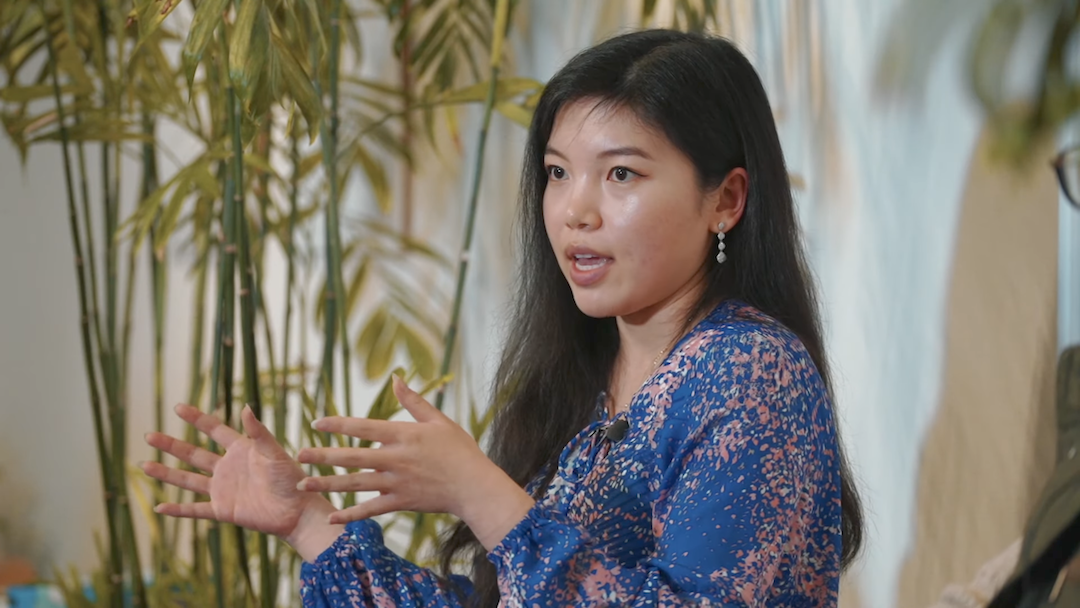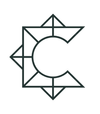Li Jin’s Fireside Chat with South Park Commons
Li Jin, general partner at Variant Fund, joined us for the second time to discuss her perspectives on web3, DAOs, investing, the creator economy, and more.

Li Jin, co-founder and general partner at Variant, joined us recently for a virtual Fireside Chat. A venture capitalist and outspoken advocate of worker’s rights, Jin shared her perspectives on web3, DAOs, investing, crypto, the creator economy and the founder experience in an hour-long virtual call that was moderated by Nadia Eldeib.
This was Jin’s second time speaking to SPC. We were grateful to hear that the reception to her first event, in early 2020, helped give Jin the confidence to launch Atelier Ventures, her first fund. One of our goals at SPC is to help members’ actions match their ambitions; we’re glad to have had a similar impact on one of our guest speakers.
Jin joined Variant last fall when she merged Atelier Ventures with the crypto centric VC firm. Dubbed by The New York Times as the investor guru for online creators, Jin has been a backer of creators since early in her career. She is also a creator herself, including Side Hustle Stack, a free resource modeled to enable influencers to find platforms that they can evaluate and leverage. Her widely-read newsletter and tweets provide keen observations on startups, the creator/ownership economy, venture finance, web3, and more.
Here are some snippets from her fireside chat:
Labor In the Ownership Economy: (3:45)
- Worker protection laws arose out of the industrial revolution and the labor movement in the early 1900s, which was when people worked for a given company much of their lives and received their benefits and protections from that company.
- The previous labor paradigm is shifting now as people assemble a portfolio of income across different sources including DAOs, platforms, apps, even through creating their own tokens and selling them.
- Now everyone is more on their own with less of a safety net than before and the existing labor laws we had around full-time work don't really cover independent contractors.
- Workers' power is eroding and employers and companies have more leverage over them than before, which is why I'm bullish on the ownership economy. I think everyone should be a part owner of the underlying platforms that they're working on, rather than just earning income.
Decentralized Autonomous Organizations: (8:09)
- We think the most successful DAOs are going to be the ones that implement some form of hierarchy or management. DAOs shouldn't in most cases make decisions by committee or be entirely democratic and flat in terms of hierarchy.
- Successful worker-owned cooperatives have leaders who are elected and accountable. This differs from traditional corporations as there’s more open governance and decision-making because the leaders were elected. They didn’t inherit the job.
- The other benefit of DAOs is distributed ownership and involvement beyond just the people that would typically be employed in a company.
Investing: (17:40)
- As an early stage investor, I've learned to not be overly tied to TAM and the existing size of markets. I think a lot of the anti-portfolios have come about because people underestimate the size of markets.
- I can point to many examples where investors including ourselves have passed because the market seemed too small and then it turned out to be much bigger than anyone expected.
- I'm a Clay Christensen devotee—he believes the market for disruptive innovations is usually larger than existing markets. Changing the basis of competition unlocks a new market that is much larger than anything we have seen before.
Web3: (19:55)
- Web3 enables the creation of networks that are both larger and smaller than what currently exists.
- We believe web3 will enable the creation of new networks that are bigger than any of the networks that we've seen today as a result of incentive alignment with their users.
- Think of the biggest networks in the world. Facebook has three billion monthly active users. But they don't have economic alignment with their users. If you layer that economic alignment, we believe a DAO could become even larger than the biggest corporations that exist today.
- Crypto is also going to enable the creation of new networks that are smaller and not viable to be formed today.
- There's many examples of new DAOs or investment clubs and syndicates, pulling together capital that probably wouldn't have done so if they weren't on crypto rails because existing barriers to entry were too high.
- Once it was too difficult for someone to pull together capital with six friends to buy a fine art painting. They would need an LLC. Now it’s more frictionless, creating a proliferation of new smaller networks that have far more viability.
Decentralization: (26:33)
- We tend to advocate for progressive decentralization vs. decentralization from Day 1.
- The initial stages of starting a new crypto project resemble building a traditional startup. You assemble a team of full-time people committed to the vision. Build a product, find product-market fit. Then build a community and then you decentralize cash flows or governance rights.
- First you have to focus on building a product that people want and need. That’s the pattern of the teams that we invest in.
- You can lean into the DAO movement without being a DAO from Day 1. You can decentralize to the community later on.
Raising Capital: (39:52)
- The more choices available to founders the better, and now there are more options than ever to raise capital. If you were raising a seed round 20 years ago, there were three firms to talk to, and they would see 100% of all seed deal flow in Silicon Valley.
- There are so many options for new projects to raise capital: VCs, angels, DAOs, foundations, or ecosystem funds raised from crypto anons, crowdfunds or tokens. Each has pros/cons. Founders just need to navigate which option gives them the highest chance of success.
- A traditional VC can offer you things that are really different from crowdfunding from 10,000 members of the community.
- The crowdfund community won’t talk to new candidates unsure about joining your team. VCs will. But raising from 10k people means you have a community from Day 1 with vested interest in your success. They represent built-in marketing and a viral conduit for your product.
Investor Regulations: (42:47)
- I don't believe in investor protections. I believe in investor education.
- The growing wealth gap and income inequality we see in the U.S. is rooted in misguided investor protection laws.
- I feel investing should just be the same downside risk for all. Prohibitions on participation always carry negative externalities. Instead, I think we should enable and empower people to make their own decisions using all information that's available.
- We must create trusted resources for people to learn about project creators, their track records, see the comps, see who else is involved. That's what we do as VCs. We have the information, the networks and the contacts to do due diligence. That should be available to all.
If you are interested in attending future fireside chats hosted by SPC with luminaries in tech, startups, venture, science, politics, and more, sign up for our events guest list. If you’re a technologist, builder, or domain-expert wondering where to navigate the -1 to 0 transition stage of your career, consider applying for membership to the SPC community.
